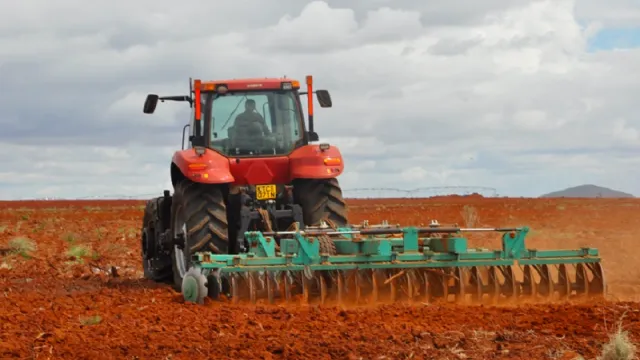Twiga Foods transfers its Galana Kulalu rights to Selu Limited

Twiga Foods transfers its Galana Kulalu rights to Selu Limited
Agri-tech company Twiga Foods has transferred its rights to the development of the Galana Kulalu Food Security Project to Selu Limited, a company established to develop, manage, and operate the project.
Selu is a Special Purpose Vehicle comprising a partnership by several companies, amongst them Campos, a farm management company overseeing over 600,000 acres of farmland in Latin America in a similar climate to Kenya and AgCo, a US-based global leader in precision agriculture technology.
Twiga Foods Managing Director Peter Njonjo said: “We believe that Selu Limited is the best fit to manage the next stage of the project, which is to develop it further, manage and then operate it. This strategic move marks a significant step towards maximising the impact of Galana Kulalu and accelerating its positive impact on the Kenyan agricultural landscape.”
In March, Twiga Foods started maize farming at the expansive Galana Kulalu scheme targeting to introduce other crops in a 20,000-acre farm under a public-private partnership (PPP) agreement.
The move came just months after authorities in President William Ruto's administration began giving parts of Galana Kulalu food security investment to private investors. Galana Kulalu has since attracted interest from companies in the US and Qatar.
Selu is currently undertaking the Development Phase covering 500 acres and targeting to achieve above nine metric tonnes per hectare, which is 4.5 times the average yield in Kenya. The global average yield is between five to six metric tonnes per hectare. The Galana Kulalu farm had yielded about 7.2 metric tonnes per hectare in past trials.
Read also: In Kenya, ‘Nikw’a ngwete’ famine of dying while holding money unfolds
Ms. Yvonne Okafor, who is managing the development phase at Selu, said: "We are delighted to be entrusted with the responsibility of developing the Galana-Kulalu farm project, which will be Kenya’s most significant maize producer. We are committed to implementing innovative strategies and leveraging state-of-the-art infrastructure to optimise efficiency and productivity. With a strong emphasis on sustainability, Selu aims to positively disrupt the agricultural sector in collaboration with key stakeholders to ensure we make a meaningful impact on food security."
The development of the Galana-Kulalu project is under a Public-Private Partnership with the Government of Kenya.
Christopher Kirigua, Director-General of Private-Public Partnerships added: "Kenya has a strong Private-Public Partnership framework which is an enabler for the private sector to identify and grow critical industries which can drive rapid transformation and help the government achieve its commitments to the Public. Selu's Project has been delivered through the new PPP framework which has delivered the private sector investment in a record 3 months.”
Selu has also partnered with reputable seed, fertiliser, and other agro-input providers to achieve optimal yields and produce safe, high-quality maize. These collaborations will enable access to high-quality maize seed varieties and fertilizer.
Planting for the trial phase has started and the maize in the trial phase is expected to grow over the next four months to determine the inputs that will be best for the commercial planting phase. The trial phase will determine the maize variety, fertiliser regime, plant spacing and population, best crop protection regime and the best soil improvement regime suited for Galana.
The company also aims to prioritise environmental sustainability by incorporating rotational crops, such as castor oil, that offer the additional benefit of reducing the project's carbon footprint while generating renewable energy from biomass waste.
With a targeted start of commercial operations in the 4th quarter of this year, Selu will invest in the development of the 20,000 acres that is currently feasible based on available water from the Galana River throughout the year.
As Kenya embarks on developing a dam on the Galana River that captures run-off during the rainy season and maximises irrigation potential, the scope of the project will be scaled to 100,000 acres, and this will generate annual production equivalent to the average maize deficit in Kenya over the last five years and over 10 percent of the country’s annual production.
Selu is dedicated to implementing an innovative and environmentally conscious approach to its execution of the project resulting in an overall carbon reduction, soil enrichment, and water conservation.
This PPP project under Selu aligns with Kenya’s long-term vision to spur agricultural development and promote food security in Kenya.



